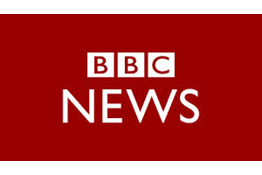 Broadcast regulator Ofcom is to publish an annual examination of the impact the BBC’s online content has on local news publishers, one of the key recommendations from the BBC Mid-Term Review (MTR) published this week.
Broadcast regulator Ofcom is to publish an annual examination of the impact the BBC’s online content has on local news publishers, one of the key recommendations from the BBC Mid-Term Review (MTR) published this week.
The review, available here, recognised fears from commercial news publishers about further BBC expansion into local news markets and emphasised it was “very important that the BBC considers what more it can do to support all parts of the local news sector.”
A study by consultants Alma Economics commissioned by the UK Department of Culture, Media and Sport as part of the MTR, found “content duplication between the BBC and commercial providers in online local news exists in a way that is consistent with multiple providers covering the same news events.,” and also recognised news publishers’ calls for greater collaboration.
As a result, the MTR recommends the publication of a BBC partnerships strategy to “align with its obligation to support the creative economy,” and to build on the Local Democracy Reporter scheme, through which local authorities are covered by reporters employed by news publishers, but funded by the BBC.
“We have specifically recommended that Ofcom annually publish its view on the BBC’s position in the local news sector, and set out its approach to considering the competition impact of changes to BBC local news services. This builds on a recommendation made in the Cairncross Review, ” said the MTR.
Newsbrands Scotland, then known as the Scottish Newswpaper Society, was consulted during Ofcom’s evidence gathering for the MTR in 2022, and director John McLellan welcomed the recommendations.
“We have been arguing for some time that the expansion of BBC operations into non-broadcast news, particularly in-depth analysis and features separate from BBC broadcast output, presented a real threat to news publishing, particularly as most companies now see subscription-based business models as crucial to their futures,” he said.
“It is much more difficult for our members to persuade members of the public to take out news subscriptions when there is always a quality, free-to-access, news service available, and one which does not carry any advertising.
“With over 3,000 people a week prosecuted for not having a television licence, the BBC enjoys a position in the market with which publishers simply cannot compete, and it is very welcome that Ofcom and the UK Government has recognised the need to address the BBC’s place in news markets,” he added.
“And it is not before time that BBC online content will be subject to independent regulation, like most news publishers, as it has long been an anomaly that the written content produced by such a dominant news publisher as the BBC was not part of any regulatory system with enforcement powers.”
UK Culture Secretary Lucy Frazer said: “In a rapidly changing media landscape the BBC needs to adapt or risk losing the trust of the audiences it relies on. Following constructive conservations with the BBC and Ofcom, we have recommended reforms that I believe will improve accountability while boosting public confidence in the BBC’s ability to be impartial and respond to concerns raised by licence fee payers.”